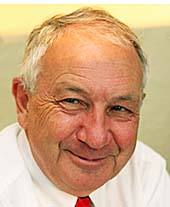|
|
|
|
|
|
ASSESSING PERCEPTIONS OF DI FAUSTO’S
NEO-TRADITIONAL ARCHITECTURE BASED ON PERSONAL CONSTRUCT METHODOLOGY
|
|
|
Ahmed Agiel *, Jon Lang ** and Peter Caputi ***
|
|
|
* United Arab Emirates University, Al Ain,
United Arab Emirates
** University of New South Wales, Sydney, NSW, Australia
*** University of Wollongong, NSW, Australia
|
|
|
|
|
|
|
Abstract
Currently there is a major debate in architectural
circles between two groups of scholars and professionals. One group completely
rejects learning from and drawing on past architectures in creating new works
while the other one builds a new architecture based on the past. Using personal
construct methodology, this study examines the work of Di Fausto, as expressed
in three Libyan designs of the 1930s. Results showed that a different architectural
‘brand image’ and an ‘ideal image’ exist in each culturally different region.
Architectural design both as it taught and in practice must change towards
incorporating the ‘inherent image’ of the local inhabitants in the creative
thinking process of new buildings if those buildings are to be meaningful for
them.
Keywords: Architectural schools of thought, brand image, ideal image, inherent image,
personal construct methodology.
|
|
|
|
|
|
|
|
About the authors
|
|
|
 Ahmed Agiel is currently Assistant Professor of
Architectural Engineering at the United Arab Emirates University, Al Ain. He
obtained his PhD from the University of New South Wales, NSW, Australia;
Masters degree in Strategic Design, Polytechnic of Milan, Italy; B.Sc. in
Architecture and Urban Planning, University of Tripoli, Libya. He focuses in
research on architectural theory and practice with a special interest in
understanding the nature of meaning in architecture and environmental
psychology. He calls for a self-sustainable architectural image of built environment
for the betterment of local inhabitants. Ahmed Agiel is currently Assistant Professor of
Architectural Engineering at the United Arab Emirates University, Al Ain. He
obtained his PhD from the University of New South Wales, NSW, Australia;
Masters degree in Strategic Design, Polytechnic of Milan, Italy; B.Sc. in
Architecture and Urban Planning, University of Tripoli, Libya. He focuses in
research on architectural theory and practice with a special interest in
understanding the nature of meaning in architecture and environmental
psychology. He calls for a self-sustainable architectural image of built environment
for the betterment of local inhabitants.
|
|
|
 Jon Lang is an emeritus professor at the University of New South Wales, Sydney,
NSW, Australia where he headed the School of Architecture between 1996 and 2000
and taught in the Masters of Urban Development and Design program from 1995 to
the present. He is director for urban design of ERG/Environmental Research
Group Inc. in Philadelphia, Pennsylvania. He was an assistant and then an associate
professor at the University of Pennsylvania between 1970 and 1990. He has
authored and co-authored books on urban design, on architectural theory and
modern architecture in India. In 2010 he was awarded the Reed and Mallik Medal
by the Institution of Civil Engineers in London. Jon Lang is an emeritus professor at the University of New South Wales, Sydney,
NSW, Australia where he headed the School of Architecture between 1996 and 2000
and taught in the Masters of Urban Development and Design program from 1995 to
the present. He is director for urban design of ERG/Environmental Research
Group Inc. in Philadelphia, Pennsylvania. He was an assistant and then an associate
professor at the University of Pennsylvania between 1970 and 1990. He has
authored and co-authored books on urban design, on architectural theory and
modern architecture in India. In 2010 he was awarded the Reed and Mallik Medal
by the Institution of Civil Engineers in London.
|
|
|
 Peter Caputi is Professor of Psychology at the University of Wollongong, NSW,
Australia. He has co-authored two books in the area of Personal Construct
Psychology, as well as several journal articles in this area. He has
particular expertise in grid methodology and analysis. Peter Caputi is Professor of Psychology at the University of Wollongong, NSW,
Australia. He has co-authored two books in the area of Personal Construct
Psychology, as well as several journal articles in this area. He has
particular expertise in grid methodology and analysis.
|
|
|
|
|
|
Reference
Agiel, A., Lang, J., Caputi, P. (2019). Assessing perceptions of Di Fausto’s neo-traditional
architecture based on personal construct methodology.
Personal Construct Theory & Practice, 16, 111-129
(Retrieved from http://www.pcp-net.org/journal/pctp19/agiel19.pdf)
|
|
|
|
|
|